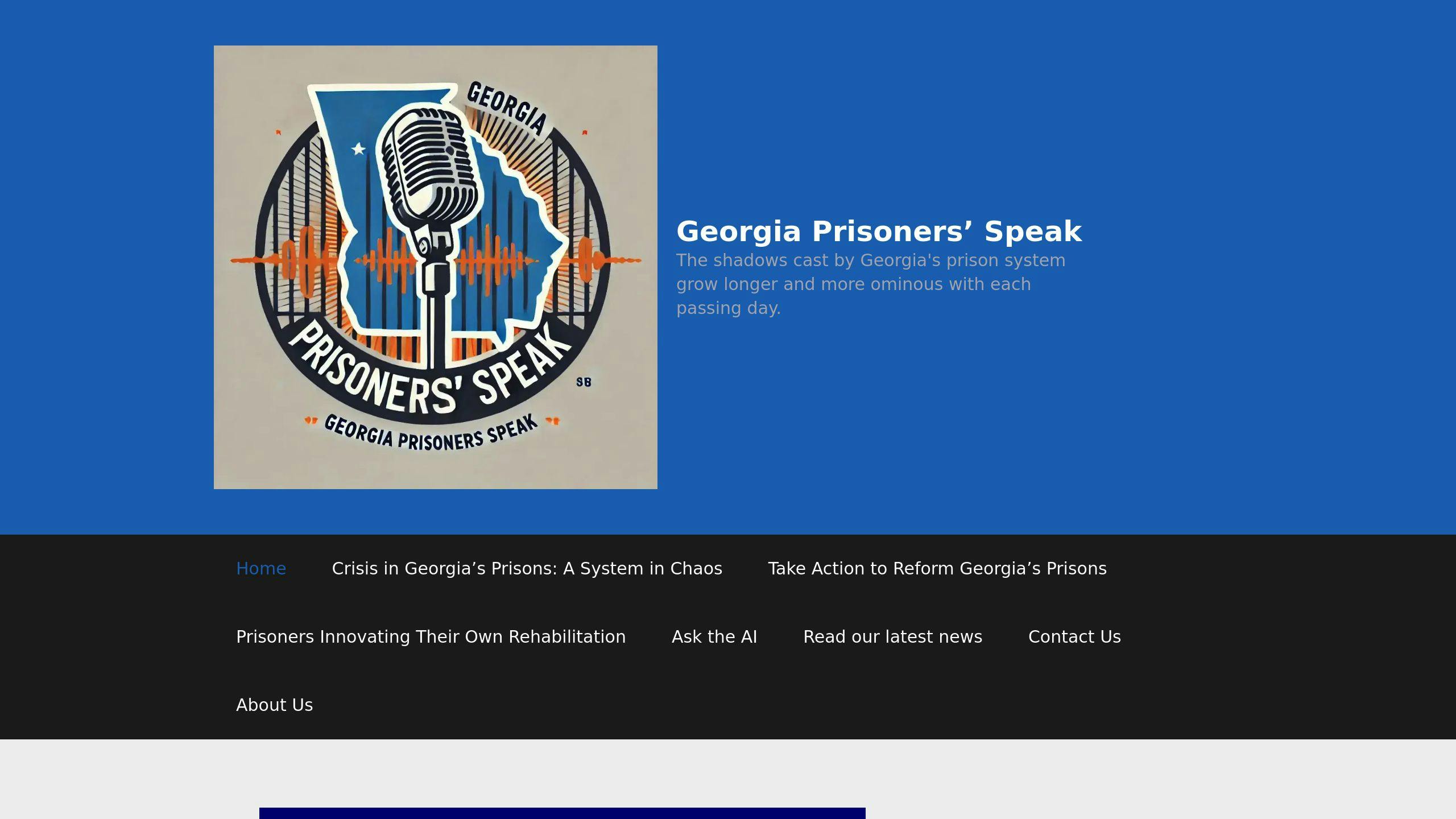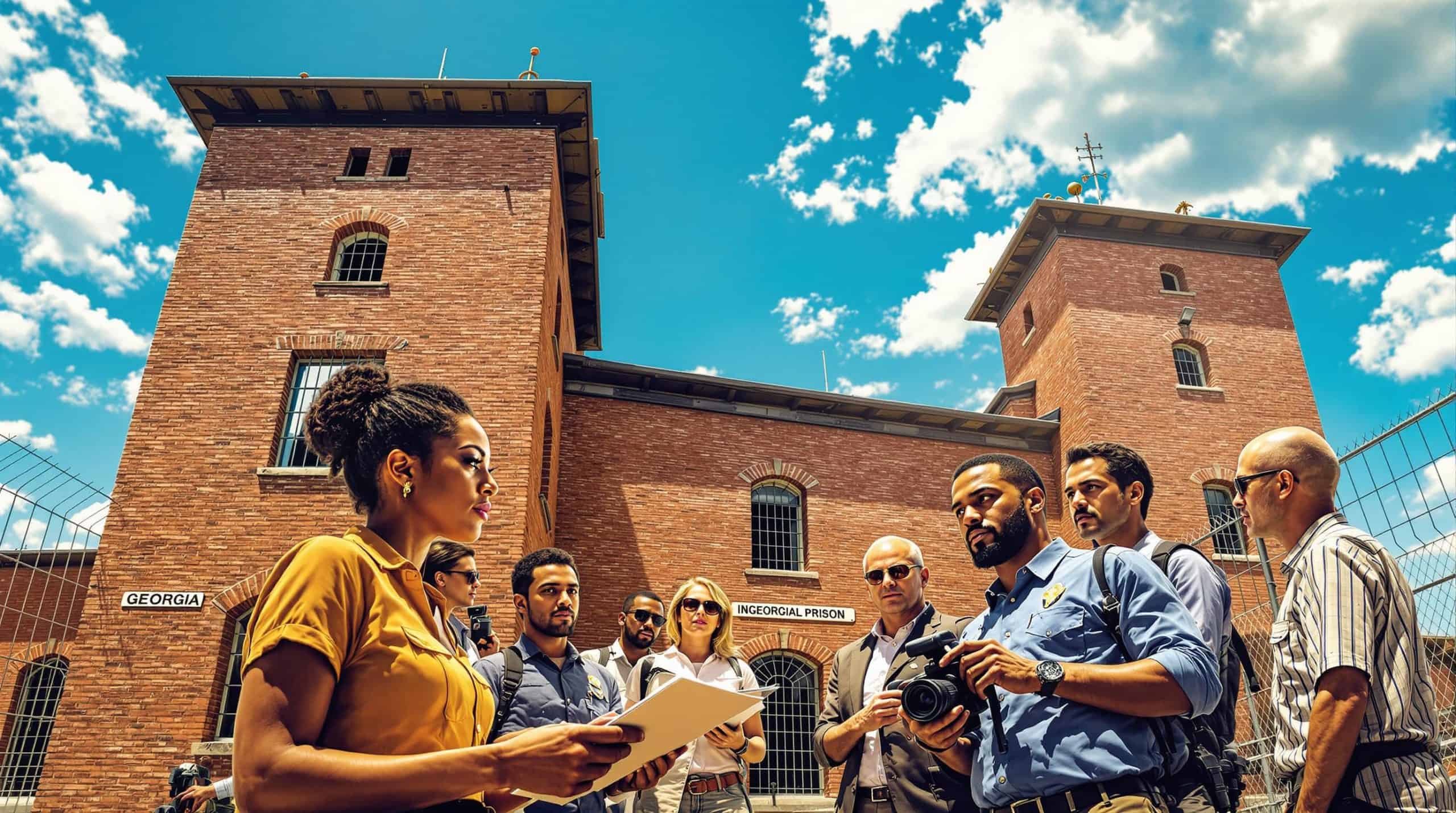Independent prison investigations are unbiased reviews conducted by third-party organizations or federal agencies to address systemic issues in Georgia’s prisons. These investigations are critical because they uncover problems that internal reviews often overlook or misrepresent. Here’s a quick summary:
- Why They Matter: Georgia’s prisons face severe challenges, including violence, drug trafficking, and corruption, worsened by poor staffing and lack of transparency.
- Key Findings: Investigations reveal unsafe conditions, constitutional violations, and systemic neglect by prison officials.
- How They Work: External groups analyze documents, conduct site visits, and interview inmates and staff to identify problems and propose reforms.
- Impact: These investigations lead to legal actions, policy reforms, and advocacy efforts aimed at improving prison conditions and accountability.
Independent investigations are essential for driving transparency, protecting human rights, and ensuring meaningful reform in Georgia’s correctional system.
U.S. Department of Justice investigating conditions in Georgia prisons
Why Does Georgia Need Independent Prison Investigations?
Georgia’s prison system is grappling with serious challenges that demand external oversight. Issues like rising violence, corruption, and worsening conditions have made independent investigations a pressing necessity.
Problems in Georgia’s Prisons
Georgia’s correctional facilities are plagued by unprecedented levels of violence, drug trafficking, and corruption. For instance, a warden was implicated in criminal schemes, exposing the deep flaws in the system [6]. These issues are compounded by severe staffing shortages, creating an unsafe environment for both inmates and staff.
"Those incarcerated and the staff who work in our prisons every day deserve an environment free from unnecessary dangers", said Rep. Lucy McBath, D-Marietta [7].
The U.S. Department of Justice’s findings shed light on key problems:
| Problem | Consequences |
|---|---|
| Violence and Poor Security | Harm to both inmates and staff; criminal activities operated from within prisons |
| Drug Trafficking | Fatal overdoses in facilities meant to be drug-free |
| Staff Corruption | Guards dismissed for smuggling contraband |
These failures show why internal reviews have been unable to fix the deeply rooted issues.
Limits of Internal Investigations
The Georgia Department of Corrections (GDC) has repeatedly withheld critical information, including data on rising death rates, to evade accountability [2]. According to Atteeyah Hollie, deputy director of the Southern Center for Human Rights, the GDC has shifted from being transparent to actively hiding details about prison deaths [2].
The Department of Justice also reported "deliberate indifference" by prison officials toward violence, drug use, and abuse [6][4]. Instead of solving these problems, internal reviews often misrepresent the truth, as seen in misleading reports to federal judges.
This pattern of secrecy and self-preservation highlights the need for independent oversight. External investigations bring impartiality and transparency, which are critical for addressing the systemic issues in Georgia’s prisons and driving genuine reform.
How Do Independent Prison Investigations Work?
Independent prison investigations in Georgia follow a structured process aimed at identifying systemic problems and constitutional violations. These investigations are carried out by third-party organizations and federal agencies to ensure impartiality and a detailed review of prison conditions.
Role of Third-Party Organizations
Organizations like Guidehouse, Inc. take on the task of assessing prison conditions through document analysis, site visits, and interviews. Their work typically involves:
| Investigation Component | Purpose | Methods |
|---|---|---|
| Document Review | Identify patterns and validate claims | Examining incident reports, medical records, and surveillance footage |
| Site Visits | Observe conditions directly | Conducting unannounced inspections and collecting physical evidence |
| Interviews | Obtain firsthand accounts | Speaking with inmates, staff, and witnesses |
These organizations work independently from the Georgia Department of Corrections, ensuring their findings and recommendations remain impartial. Their investigations often highlight problems that internal reviews might miss or understate.
Federal Investigations by the Department of Justice
The U.S. Department of Justice (DOJ) plays a critical role in reviewing Georgia’s prison system through civil rights investigations. In 2022-2023, the DOJ reviewed over 19,000 records and uncovered hundreds of serious incidents, exposing misconduct and negligence [5]. In 2021, the DOJ expanded its focus to include protecting all incarcerated individuals from violence [5], revealing deeper systemic issues within Georgia’s prisons.
Federal legislation, such as the Federal Prison Oversight Act, requires unannounced inspections and public reporting. These measures promote transparency and set a standard that could enhance investigations in Georgia [8]. This level of openness increases the chances of turning investigation findings into actionable reforms.
The outcomes of these investigations often drive policy changes, legal actions, and advocacy efforts. By identifying systemic failures, they create a foundation for improving prison conditions and holding institutions accountable.
sbb-itb-7858f51
What Happens After Independent Investigations?
Independent investigations often lead to reforms, legal actions, and advocacy efforts aimed at addressing long-standing problems in Georgia’s prison system. The findings from these investigations act as a push for change in how the correctional system operates.
Proposed Reforms and Legal Actions
The Department of Justice has recommended several major reforms to tackle urgent issues in Georgia’s prisons. These focus on:
- Hiring and retaining more staff to reduce violence
- Improving officer training and crisis intervention strategies
- Upgrading infrastructure and security systems
- Setting up independent monitoring and transparent reporting systems
The Georgia House and Senate have also formed committees to assess funding needs specifically tied to improving prison safety conditions [1]. These committees aim to turn investigation results into actionable policies.
Legal actions have also followed these investigations. For instance, a federal judge issued a contempt order against the Georgia Department of Corrections for not improving conditions in the Special Management Unit prison [2][3]. The Department of Justice uncovered several alarming issues:
- Hundreds of documented safety violations
- Severe staffing shortages and poorly trained personnel
- Drug trafficking operations running inside over two dozen Georgia prisons between 2015 and 2024 [3]
Advocacy groups like Georgia Prisoners’ Speak have stepped up to ensure these findings lead to real change. They focus on keeping public attention on the issue, pushing for reforms, and providing a voice for incarcerated individuals to report ongoing problems.
While legal and policy efforts set the stage for change, advocacy groups are essential in making sure those changes are carried out effectively.
How Advocacy Groups Support Independent Investigations
Advocacy groups use a variety of strategies to bolster independent investigations, including:
- Collecting evidence from prisoners and their families to strengthen investigations
- Running media campaigns to keep prison-related issues in the public eye
- Collaborating with stakeholders to share findings and advocate for reforms
- Tracking the implementation of recommended changes
Georgia Prisoners’ Speak: Amplifying Voices Behind Bars

Georgia Prisoners’ Speak (GPS) shows how consistent advocacy and transparency can enhance independent investigations. The organization sheds light on systemic problems in Georgia’s prison system while empowering incarcerated individuals to document and report these issues.
GPS partners with coalitions like They Have No Voice and Ignite Justice to amplify the perspectives of those inside and push for change [9]. Their efforts include:
- Organizing grievances and educating prisoners about their rights through secure channels
- Working with journalists to expose prison conditions and share investigation findings
- Leveraging social media platforms to challenge official narratives with documented evidence
- Protecting whistleblowers from retaliation while ensuring their concerns are recorded
"The Bureau of Prisons, at the federal level, is a diseased bureaucracy that for decades has allowed conditions to deteriorate in federal prisons across the country." – U.S. Sen. Jon Ossoff [8]
The influence of advocacy efforts can be seen in recent legislative measures, such as the Federal Prison Oversight Act. This law requires unannounced inspections of federal prisons, with findings made public within 60 days [8].
Conclusion: Why Independent Investigations Matter
Independent investigations play a key role in pushing for real change in Georgia’s prison system. The Department of Justice’s work has shown how outside oversight can uncover serious issues that internal reviews often miss.
These investigations have revealed deep-rooted corruption and violence, emphasizing the importance of external accountability. Assistant U.S. Attorney General Kristen Clarke pointed out that such investigations uncovered "longstanding, systemic violations", leading to measures like increased funding for prison security and the creation of a special committee to tackle these issues [1] [3].
Even with difficulties in accessing records [4], these investigations continue to spark reforms. They go beyond just reporting problems – they lead to real action, including legal steps and new reform initiatives.
When investigators collaborate with advocacy groups, their combined efforts strengthen reform movements. By merging official findings with grassroots evidence, they create a strong case that compels policymakers to act. This partnership offers a promising path to achieving meaningful changes in Georgia’s prison system.
Independent investigations aren’t just about identifying issues – they’re essential for ensuring accountability and protecting basic human rights within the system.
